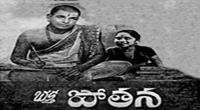It has been suggested that Islamic marital jurisprudence be merged into this article. (Discuss) Proposed since August 2017. |
This article uncritically uses texts from within a religion or faith system without referring to secondary sources that critically analyze them. (April 2016) (Learn how and when to remove this template message) |

In Islam, marriage is a legal contract between a man and a woman. Both the groom and the bride are to consent to the marriage of their own free wills. A formal, binding contract is considered integral to a religiously valid Islamic marriage, and outlines the rights and responsibilities of the groom and bride. There must be two Muslim witnesses of the marriage contract. Divorce in Islam can take a variety of forms, some initiated by the husband and some initiated by the wife.
In addition to the usual marriage until death or divorce, there is a different fixed-term marriage known as zaw?j al-mut?ah ("pleasure marriage")(p1045) permitted only by the Twelver branch of Shia Islam for a pre-fixed period.(p242) There is also Nikah Misyar, a non-temporary marriage with the removal of some conditions such as living together, permitted by Sunni Muslims. Sunnis also allow Nikah urfi and some sects of Sunni allow Nikah halala.
Contents
Terminology
In Islamic law, marriage is called nikah, an Arabic word whose original literal meaning is " Wedding ", but which already in the Quran is used exclusively to refer to the contract of marriage. In the Wehr-Cowan Dictionary of Modern Written Arabic, nikah is defined as "marriage; marriage contract; matrimony, wedlock".
The marriage contract is known by different names: Literary Arabic: ??? ?????? ?aqd al-qir?n, "matrimony contract"; Urdu: ???? ????? / ALA-LC: Nik??-n?mah; Persian: ??????? ezdev?j "marriage" and ??? ?????? or ??????? (s?n?de ezdev?j, aqd n?meh) for the certificate.
History
In Pre-Islamic Arabia a variety of different marriage practices existed. The most common and recognized types of marriage at this time consisted of: marriage by agreement, marriage by capture, marriage by mahr, marriage by inheritance and "Mot'a" or temporary marriage.
According to Islamic sources, some women in pre-Islamic Arabia had little control over their marriages. They were rarely bound by contract for marriage or custody of children and their consent was rarely sought. Women were seldom allowed to divorce their husbands and their view was not regarded for either a marriage or divorce.
Reforms after Islam
Muhammad had reformed the laws and procedures of the common marriage practices that existed during his prophethood. The rules of "marriage by agreement (marriage through consent)" was reformed and a strict set of rules and regulations were put in place. The practices of "marriage by inheritance" was forbidden. Several chapters and verses from the Quran were revealed which banned such practices.
Under the Arabian pre-Islamic law, Islamic sources allege that no limitations were set on men's rights to marry or to obtain a divorce. Islamic law limited to men to four wives at one time, not including concubines. () The institution of marriage was refined into one in which the woman was somewhat of an interested partner. 'For example, the dowry, previously regarded as a bride-price paid to the father, became a nuptial gift retained by the wife as part of her personal property' Under Islamic law, marriage was no longer viewed as a "status" but rather as a "contract". The essential elements of the marriage contract were now an offer by the man, an acceptance by the woman, and the performance of such conditions as the payment of dowry. The woman's consent, given either actively or by silence, was required. Furthermore, the offer and acceptance had to be made in the presence of at least two witnesses. A married woman had the right to be given food and clothes by her husband, though her husband had more rights over her: "I enjoin good treatment of women, for they are prisoners with you, and you have no right to treat them otherwise, unless they commit clear indecency. If they do that, then forsake them in their beds and hit them, but without causing injury or leaving a mark. If they obey you, then do not seek means of annoyance against them. You have rights over your women and your women have rights over you. Your rights over your women are that they are not to allow anyone whom you dislike to tread on your bedding (furniture), nor allow anyone whom you dislike to enter your houses. And their right over you are that you should treat them kindly with regard to their clothing and food."
Conditions
Islamic marriages require acceptance, in Arabic: ????? qub?l, of the groom, the bride and the consent of the custodian (wali) of the bride. The wali of the bride is normally a male relative of the bride, preferably her father. The guardian (wali) of the bride can only be a free Muslim with exception to cases whereby the bride is of Christian or Jewish faith, in such cases the bride should be given away by someone from her religious background. The bride is normally present at the signing of the marriage contract.
The Wali mujbir (Arabic: ??? ?????) is a technical term of Islamic law which denotes the guardian of a bride. In traditional Islam, the literal definition of "wali", which means "custodian" or "protector", is used. In this context, it is meant that the silence of the bride is considered consent. In most schools of Islamic law, only the father or the paternal grandfather of the bride can be wali mujbir.
If the conditions are met and a mahr and contract are agreed upon, an Islamic marriage ceremony, or wedding, can take place. The marital contract is also often signed by the bride. The consent of the bride is mandatory. Hadith The Islamic marriage is then declared publicly, in Arabic: ??????, aa'laan, by a responsible person after delivering a sermon to counsel and guide the couple. It is not required, though customary, that the person marrying the couple should be religiously well-founded in knowledge. The bridegroom can deliver the sermon himself in the presence of representatives of both sides if he is religiously educated, as the story goes about Imam Muhammad bin Ali around 829 AD . It is typically followed by a celebratory reception in line with the couple's or local customs, which could either last a couple of hours or precede the wedding and conclude several days after the ceremony.
The Quran tells believers that even if they are poor they should marry to protect themselves from immorality. The Quran asserts that marriage is a legitimate way to satisfy one's sexual desire. Islam recognizes the value of sex and companionship and advocates marriage as the foundation for families and channeling the fulfillment of a base need. Marriage is highly valued and regarded as being half of one's faith, according to a saying of Muhammad. Whether marriage is obligatory or merely allowed has been explored by several scholars, and agreed that "If a person has the means to marry and has no fear of mistreating his wife or of committing the unlawful if he does marry, then marriage in his case is mustahabb (preferred)."
Prerequisites
The Quran outlines some conditions for a marriage to take place:
- A marriage should be conducted through a contract and a mandatory sum of wealth provided to the bride, which here refers to the mahr. Once a mahr has been ascertained with the realization that it is an obligation of a Muslim husband, the groom is required to pay it to the bride at the time of marriage unless he and his bride can mutually agree to delay the time of some of its payment. In 2003, Rubya Mehdi published an article in which the culture of mahr among Muslims was thoroughly reviewed. There is no concept of dowry as such in Islam. A dowry as such is a payment to the groom from the bride's family, and is not an Islamic custom. Bride prices are also expressly prohibited.
- Another requisite of marriage is chastity. No fornicator has the right to marry a chaste partner except if the two purify themselves of this sin by sincere repentance.
- Marriage is permitted for a man with a chaste woman either Muslim or from the People of the Book (Arabic Ahl al Kitab, Jews, Sabians and Christians) but not to polytheists (or "idolaters": Yusuf Ali translation or "idolatresses": Pickthal translation). For women, marriage to Jews, Sabians and Christians and to polytheists (Idolatry) (or "idolaters": Yusufali translation or "disbelievers": Pickthall translation) is prohibited; they are only allowed to marry Muslims. There is no express prohibitionin the Quran or elsewhere about a Muslim woman marrying a People of the Book. However, the vast majority of Muslim jurists argued that since express permission was given to men, by implication women must be prohibited from doing the same. The movement of Islamic jurists and imams that do not agree on this interpretation is growing.
- Spoken consent of the woman is only required if she is not a virgin and her wali is neither her father nor her paternal grandfather. But a virgin may not be married off without her permission. If she is too shy to express her opinion her silence will be considered as implicit agreement . The wali, who can force a bride against her outspoken will into marriage, is called wali mujbir, according to "The Encyclopaedia of Islam". If the woman was forced into a marriage, without the above-mentioned conditions, according to the Hanafi school of Islamic law the decision can be revoked, when the bride comes of age. Binti Khudham says that when she became a widow her father solemnized her marriage. She did not like the decision so she went to Muhammad, who gave her permission to revoke her marriage. Hence, forced marriages are against Islamic teachings if the woman is a virgin, and those forced into marriages before they have come of age have the right to contest them once they do.
- The importance of the wali is debated between the different schools of thought. To the Hanafi Sunnis, a male guardian is not required for the bride to become married, even if it is her first marriage. Therefore, the marriage contract is signed between the bride and the groom, not the groom and the wali. To the Hanbali, Shafi'i, and Maliki Sunni schools, a wali is required in order for a virginal woman to marry. In these schools, if a woman has been divorced, she becomes her own guardian and does not need a wali to sign a marriage contract.
Rights and obligations of spouses
According to Islam, both men and women have rights over each other when they enter into a marriage contract, with the husband serving as protector and supporter of the family most of the time, from his means. This guardianship has two aspects for both partners:
- The husband is financially responsible for the welfare and maintenance of his wife or wives and any children they produce, to include at a minimum, providing a home, food and clothing. In return, it is the duty of the wife to safeguard the husband's possessions and protect how wealth is spent. If the wife has wealth in her own capacity she is not obliged to spend it upon the husband or children, as she can own property and assets in her own right, so the husband has no right for her property and assets except by her will. A pre-marital agreement of the financial expectation from the husband is in the mahr, given by him to the wife for her exclusive use, which is included as part of his financial responsibility.
Several commentators have stated that the superiority of a husband over his wife is relative, and the obedience of the wife is also restrictive. The Quran advises men that if they are certain of a rebellious attitude by the woman, they should first admonish her, then refuse to share beds, and finally beat her, according to Quran 4:34. (Today most Islamic scholars agree that it be without leaving a mark and not on the face). This refers to serious breaches of behavior such as being promiscuous according to renowned 20th-century scholar Muhammad Hamidullah which is not expected from a dutiful wife, and not for simple disobedience to the husband. In explaining this, Ibn Abbas gives an example of striking with a toothstick.
Women are also reminded that in case the husband is not fulfill
Watch movie Nikaah online on Amazon
Watch movie Nikaah online
Watch The Movie On PrimeDance Dance Full HD Movie Download

Amrapali (1966) Full HD Movie Download
.jpg)
Swarg Full HD Movie Download

Parthale Paravasam Full HD Movie Download

Eraser Full HD Movie Download

Modala Sala Full HD Movie Download

Jay Maa Full HD Movie Download

Seetharamakalyanam Full HD Movie Download

Senapathi Full HD Movie Download

Pachani Samsaram Full HD Movie Download

We Married Margo Full HD Movie Download

Chikkadu Dorakadu Full HD Movie Download

International Don Full HD Movie Download

Seven Full HD Movie Download

Nandha Full HD Movie Download

Jagat Khiladi Full HD Movie Download

Bhakta Pothana Full HD Movie Download

Kalyana Ramudu Full HD Movie Download

Andha Bichar (Bengali) Full HD Movie Download
.jpg)
Awaaz Full HD Movie Download

Tashan Full HD Movie Download

Download latest Movie from bollywood
- 1> baaghi 3
- 2> THE SKY IS PINK MOVIE FULL STORY AND REVIEW
- 3> Luka Chuppi
- 4> TO ALL THE BOYS I’VE LOVED BEFORE
- 5> Kabir Singh
- 6> Street Dancer 3D
- 7> Simmba
- 8> Gone Girl
- 9> The Girl Who Lived
- 10> Ludo
- 11> DILWALE DULHANIA LE JAYENGE
- 12> GUILTY
- 13> The Godfather
- 14> Adventures of Rusty
- 15> Sooryavanshi
- 16> Satyameva Jayate 2
- 17> Thappad
- 18> Bhool Bhulaiyaa 2
- 19> KGFChapter 2
- 20> Mardaani 2
- 21> Pinjar
- 22> Shivaji maharaj
- 23> Ek Villian 2
- 24> Hungama 2
- 25> Divergent
- 26> Mumbai Saga
- 27> The Internship
- 28> HIT (telugu)
- 29> Panga
- 30> The perfect date
- 31> 16 December
- 32> Gopala Gopala (Telugu)
- 33> Brahmastra
- 34> Gangubai Kathiawadi
- 35> Manmadhudu
- 36> Nenu local
- 37> Mahanati
- 38> Shatamanam bavathi
- 39> Lagaan
- 40> After
- 41> MOM
- 42> Shamshera
- 43> Raguvaran BTech
- 44> Khakee
- 45> The villain
- 46> OM
- 47> Mr. perfect
- 48> Bueatifull mind
- 49> Hichki
- 50> Gabbar Singh
- 51> Jogi
- 52> Before Sunrise
- 53> Before Sunset
- 54> Before Midnight
- 55> The Big Bull
- 56> Top Gun: Maverick
- 57> The Purge
- 58> The Sky is Pink
- 59> Laxmmi Bomb
- 60> Sadak 2
- 61> Sufna
- 62> Prithviraj
- 63> PK
- 64> Coolie No 1(2020)
- 65> Black Widow
- 66> Dear Zindagi
- 67> Dil Bechara
- 68> PHIR HERA PHERI
- 69> WAR
- 70> Dostana
- 71> RRR: Roudram Ranam Rudhiram
- 72> Maidan
- 73> Dabbang 3
- 74> Chhalaang
- 75> life as we know it
- 76> SherShaah
- 77> Sandeep Aur Pinky Faraar
- 78> Event Horizon
- 79> 83
- 80> Radhe: Your Most Wanted Bhai
- 81> Gunjan Saxena: The Kargil Girl
- 82> Mr India
- 83> Vivah
- 84> Anokha Bandhan
- 85> Ghost
- 86> Bhoot: Part One - The Haunted Ship
- 87> Haseen Dilruba
- 88> Laal Singh Chaddha
- 89> Qismat
- 90> Rajput
- 91> Drive
- 92> Dil Chahta Hai
- 93> Dil Ki Baazi
- 94> Dil Ka Rishta
- 95> Teesri Manzil
- 96> Dil
- 97> Love Aaj Kal
- 98> Khaali Peeli
- 99> Bunty Aur Babli 2
- 100> Atrangi Re
- 101> Gulabo Sitabo
- 102> Jodi
- 103> Suraj Pe Mangal Bhari
- 104> Deewana
- 105> Attack
- 106> Sardar Udham Singh
- 107> Toofan
- 108> THE LOVEBIRDS
- 109> Jersey
- 110> Ginny Weds Sunny
- 111> Thalaivi
- 112> Shiddat
- 113> Angels vs Zombies
- 114> Koi Mil Gya
- 115> Thank God
- 116> Bhuj: The Pride of India
- 117> Hum Aapke Hain Kaun
- 118> The Platform
- 119> Bird Box
- 120> Roohi Afzana
- 121> Torbaaz
- 122> Nikamma
- 123> World War Z
- 124> Extraction
- 125> Train to Busan
- 126> Life of Pi
- 127> SHAADI MEIN JROOR AANA
- 128> Himmat Aur Mehnat
- 129> To All The Boys: P.S. I Still Love You
- 130> Mimi
- 131> Good Newwz
- 132> Shubh Mangal Zyada Saavdhan
- 133> Raabta
- 134> Harry Potter and the Philosopher's Stone
- 135> Harry Potter and the Chamber of Secrets
- 136> Chhapaak
- 137> War of the Worlds
- 138> Harry Potter and the Prisoner of Azkaban
- 139> Harry Potter and the Goblet of Fire
- 140> MURDER MYSTERY
- 141> Shakuntala Devi
- 142> Bachchan Pandey
- 143> Jayeshbhai Jordar
- 144> Sheer Qorma
- 145> Saina
- 146> 'O' Pushpa I hate tears
- 147> Kedarnath
- 148> MS Dhoni The Untold Story
- 149> Chhichhore
- 150> Badhaai Ho
- 151> Unstoppable
- 152> Oz the Great And Powerful
- 153> The Girl on the Train
- 154> Haathi Mere Saathi 2020
- 155> The Conjuring: The Devil Made Me Do It
- 156> Gandhi Se Pehle Gandhi
- 157> The Song of Scorpions
- 158> Srimanthudu
- 159> Hello Guru Prema Kosame
- 160> Beauty and The Beast
- 161> Black Panther
- 162> Charlie and the Chocolate Factory
- 163> Bole Chudiyan
- 164> Fidaa
- 165> Duvvada Jagannadham
- 166> Bruce Lee: The Fighter
- 167> Hyper
- 168> Yaara
- 169> Red (2020)
- 170> Shivam
- 171> That Is Mahalakshmi
- 172> Nishabdham
- 173> Aashram 2020 web series
- 174> Laxmii
- 175> Mismatched
- 176> STUDENT OF THE YEAR 2
- 177> NAIL POLISH
- 178> Ramprasad Ki Tehrvi
- 179> KAAGAZ
- 180> 12 o Clock
- 181> The Power
- 182> bolo hau
- 183> Tribhanga
- 184> JAMUN
- 185> Madam Chief Minister
- 186> Maasaab
- 187> Aadhaar
- 188> Tanhaji
- 189> Bhaagi 3
- 190> Bhootnath
- 191> MALANG
- 192> Jai Mummy Di
- 193> Haathi Mere Saathi 2021
- 194> Shakeela
- 195> Unpaused
- 196> Annayya
- 197> Vamsoddharakudu
- 198> Mrugaraju
- 199> Narasimha Naidu
- 200> Sankranti
- 201> Manasu Maata Vinadhu
- 202> Anjaane
- 203> Apaharan
- 204> Bachke Rehna Re Baba
- 205> Bewafaa
- 206> Roohi
- 207> Radhe
- 208> Zindagi Khoobsoorat Hai
- 209> Yeh Mohabbat Hai
- 210> Yeh Kya Ho Raha Hai?
- 211> The Tomorrow War
- 212> DehradunDiary
- 213> Meri Shaadi Karaoo
- 214> Matruu Ki Bijlee Ka Mandola
- 215> No One Killed Jesica
- 216> Aag Ka Goola
- 217> Eight Million Dollars
- 218> Three Hundred
- 219> Cats and Dog
- 220> Decoy
- 221> Gold Rush
- 222> You Have Got Mail
- 223> Final Destination three
- 224> Tofan
- 225> Jungle
